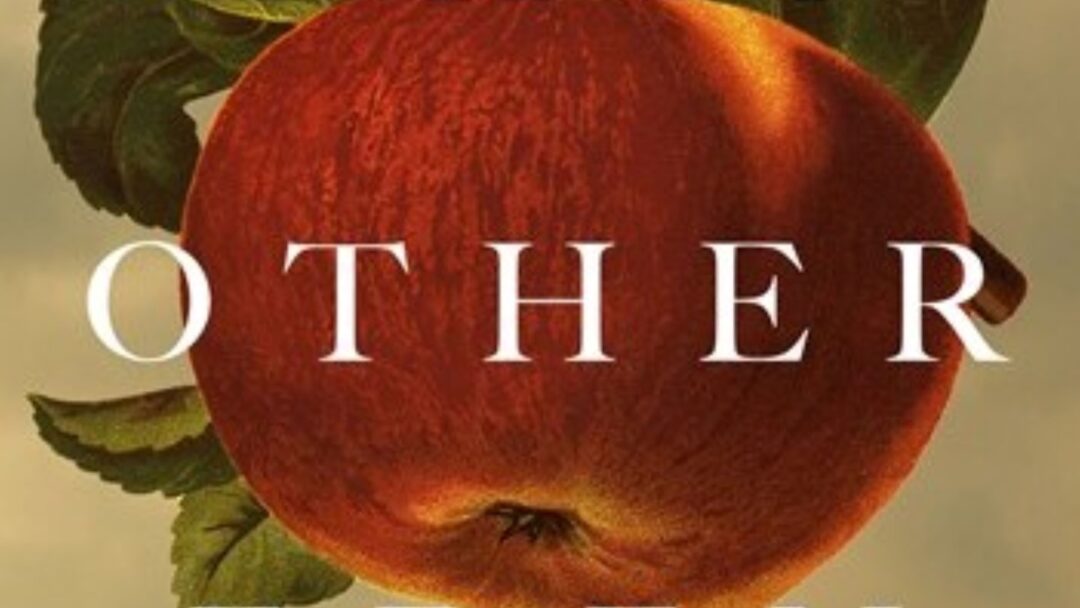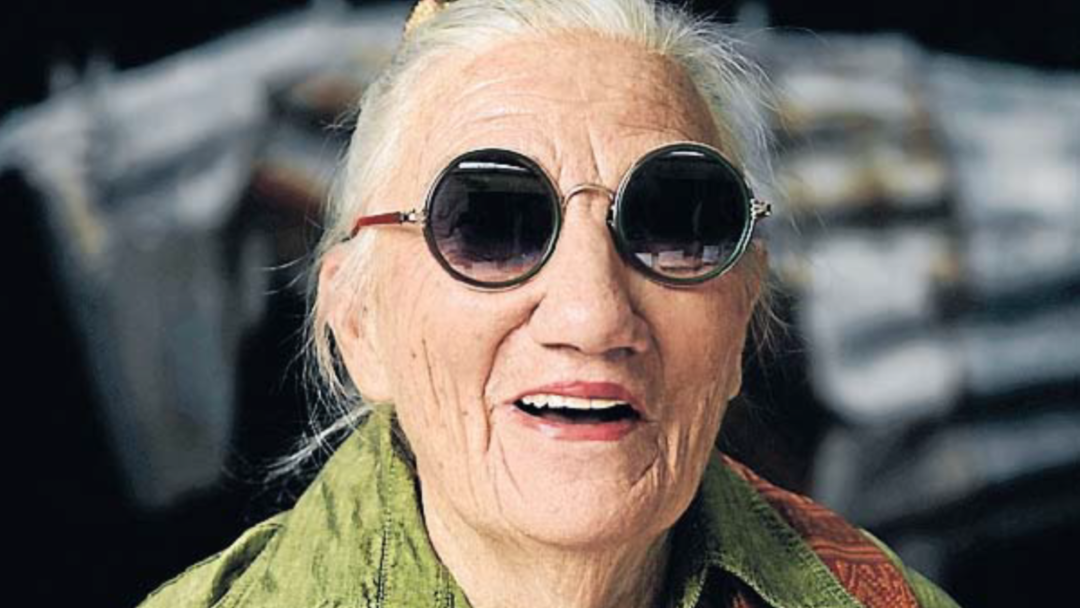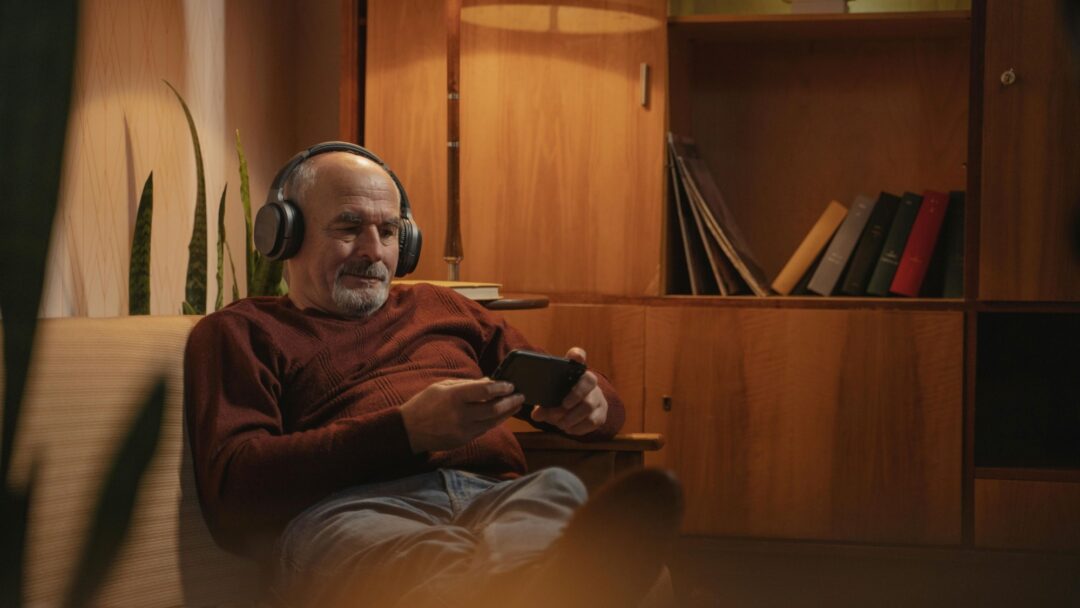Audio
Coming events at Vision Library - and a Kerouac classic
Hear This by
Vision Australia3 seasons
15 March 2024
29 mins
Coming events and books at Vision Australia Library for people with blindness or low vision.

Hear This is a weekly presentation from the Vision Australia Library service, bringing you up to date with what’s on offer for people with blindness or low vision. The program features reviews, readings and Reader Recommends. Presented by Frances Keyland.
In this edition, the library's Community Engagement Coordinator Leanne Surjadi gives an update on forthcoming events as well as latest books available - including a Jack Kerouac classic from the "Beat Generation".
00:09UU
Take a look... inside the book.
00:18S2
Hello and welcome to Hear This. I'm Frances Keyland, and you're listening to the Vision Australia Library radio show on Vision Australia Radio. Today we have our special guest, Leanne Surjadi, the community engagement coordinator. Our reminding us of a couple of really great events that are coming up. So I hope you enjoy the show. I'm here once again with Leanne Surjadi, the community engagement coordinator here at Vision Australia Library. Hi, Leanne.
00:49S3
Hi, Frances. How are you today?
00:51S2
I'm very well, thanks. How are you?
00:53S3
Good. Thank you.
00:55S2
And yes, this major event for the Library and Vision Australia is coming up very soon.
01:01S3
Yes. We are so thrilled to be hosting Alexis Variety in conversation with Vision Australia Library on the 25th of March. That's a Monday. It will be a lunchtime online event so you can join from wherever you are. And yes, Alexis is kicking off our In Conversation series for the year. And I yeah, I really don't think we could have brought a more brilliant writer to join us. So we're so thrilled for this. Alexis is one of Australia's most celebrated writers. Is the Miles Franklin winner, a stellar prize winner. And she will be in conversation with Astrid Edwards, who's a fantastic bibliophile and book critic. Astrid was part of our In Conversation event with Richard Fidler last year.
But for those who might remember that one, and they'll be chatting about Alexis's writing and in particular her latest work called Praiseworthy which has just been longlisted for the Stella Prize. And it will soon be coming to Vision Australia library [indistinct].
02:06S2
I think everybody's got their fingers crossed in their request lists open. Waiting for that one.
02:12S3
Yes, yes, I know the team are working on getting that into the library as soon as possible, hopefully before our conversation so people can at least get started with it. But I think, the conversation will be a great introduction for this particular novel to to praiseworthy. Alexis writes writing. Yeah, it's quite challenging. It is very kind of literary. She comes from a really interesting kind of worldview. So, yeah, I think this conversation will really help us to kind of be prepared to, to read this, this novel, which has been described as really, kind of groundbreaking, I think. I was chatting to Astrid, Dahlia, and she mentioned that one critique of the novel described it as canon-breaking.
03:01S2
That's amazing.
03:03S3
So, yeah, we just really hope our members join us live with this in conversation event, but it's also open to everyone. So, you know, share it among your book loving friends as well.
03:15S2
So how do people find out more about it or register for this event?
03:20S
Yes. So if you jump online to the Vision Australia website, visionaustralia.org forward slash library. And look for the What's On section. You'll find the link to the event details where you can register so it is via zoom, and you'll need to register to be able to join the zoom session.
03:41S2
And are there limited places? This is me just asking a question because I'm really sort of still unfamiliar with zoom. Is there really, um, is there are they limited zoom places?
03:50S3
No, not for these plans. So, um, we love opening up our conversation events to as many people as we can. So yeah, there's no no limited capacity on this one. Um, sometimes when we do workshops and things, we will have limited numbers just to ensure we've got a really nice, workable group for those sessions. But, for a program like this where we're having a conversation with the author that we would love to have everyone along wonderful.
04:18S2
Well, and, Leanne, is there anything else happening with the library at the moment?
04:24S3
Yeah, should say, I thought I would let people know about our next treat yourself. So going from, you know, from kind of high calibre authors to a chat about science fiction for our next treat yourself. And so that'll be on the 15th of April. So still a few weeks to go for that one. You joined our last trip yourself, which was in February, where we looked at romance. Yeah. But, yeah, we'll be exploring science fiction. I think we're calling this one Navigating the Literary Cosmos. So, yeah, looking at kind of fantasy. Yeah, I'm looking forward to this one. It's not my genre. So my, my colleague Siobhan will be joining this session.
It's great that we have such kind of a diverse group of readers in our library team. Yes, I think this one will be a lot of fun. I know that we have a lot of not a lot of science fiction fans among our library members, as well as people perhaps like myself, who are not so familiar with the genre. So it might be a chance to kind of hear about some, you know, some classic science fiction works and, yeah, add a bit of diversity to your reading list.
05:37S2
And what have you been reading, Leanne?
05:38S3
So I have been making my way through Carpentaria by Alexis Rice. So that was her, my Franklin winning book and yeah, a great a great introduction, I think, to her writing. It is... yeah, it's challenging. It's written in a really... magical way. The work's been described with some magical realism, so there's a sense of not quite being sure what is happening in physical reality versus what is being imagined or felt or sense. And, you know, the characters are really complex as well, so they can kind of abhor you as much as they draw your empathy. The language use is really, really interesting. Yeah, so it's just kind of raising my admiration for her as, as a writer.
So I'm not too far into Carpentaria yet, just making my way slowly through it, but really enjoying, kinds of challenges with me as a reader. A more lighthearted recommendation that came to me from the last treat yourself. I'm reading The Champagne at War by Fiona McIntosh, which is a romance set in in the south of France in the First World War.
06:55S2
Oh, fantastic. It sounds lovely. Look, thank you for coming in today, Leanne. And, yeah, sorry we couldn't be in the studio together, but it's been lovely to hear from you anyway. And thank you.
07:05S3
No worries. Thanks, Frances. I look forward to being in the studio next month.
07:09S2
Okie doke. By. The 12th of March this year saw the 102nd anniversary of the birth of Jack Kerouac. He who reputedly coined the phrase the Beat Generation. His novel On the Road was published in 1957 and was an instant hit and captured the imagination of a post-war generation who wanted to see America a little bit more clearly, away from the veneer of patriotism, consumerism and religion. Regarded as a novel that defines the Beat Generation who roamed the American continent in a while in a wild, desperate search for identity and purpose. Poetic, open and raw, Kerouac's prose lays out a cross-country adventure as experienced by Cell Paradise, an autobiographical biographical character, a writer holed up in a room at his aunt's house.
Paradise gets inspired by Dean Moriarty, a character based on Kerouac's friend Neal Cassady, to hit the road and see America from the moment he gets on the seven train out of New York City, he takes the reader through the highs and lows of hitchhiking, bonding with fellow explorers, and opting for beer before food. Let's hear a sample of On the Road by Jack Kerouac. It's narrated by John Chancer.
08:30S4
For the next 15 days, we were together, for better or for worse. When we woke up, we decided to hitchhike to New York together. She was going to be my girl in town. I envisioned wild complexities with Dean and Marylou and everybody. A season, a new season. First, we had to work to earn enough money for the trip. Terry was all for starting at once with the $20 I had left. I didn't like it. And like a damn fool, I considered the problem for two days as we read the want ads of wild L.A. papers I'd never seen before in my life in cafeterias and bars, until my 20 dwindled to just over ten, we were very happy in our little hotel room in the middle of the night, I got up because I couldn't sleep. I pulled the cover over baby's bare brown shoulder and examined the lay night.
What brutal, hot siren whining nights they are. Right across the street. There was trouble. An old, rickety, rundown rooming house was the scene of some kind of tragedy. The cruiser was pulled up below, and the cops were questioning. An old man with gray hair, sobbing, came from within. I could hear everything together with the hum of my hotel neon. I never felt sadder in my life. LA is the loneliest and most brutal of American cities. New York gets got off a cold in the winter, but there's a feeling of wacky comradeship somewhere in the streets. LA is a jungle.
10:12S2
And that was On the Road by Jack Kerouac. There are many other Kerouac books in the library. Jack is spelt [spells author's name]. There's also the Dharma Bums, Big Sur. The Sea is My Brother, and an interesting title. This one. And the hippos were boiled in their tanks. The novel has been called a Roman a clef, which is French font novel with a key, and this is a novel about real life events that is overlaid with with a facade of fiction. In On the Road, there are many key figures of the beat movement that are featured, such as William S Burroughs, who's given the name in the novel Old Bull Li, and Allen Ginsberg, who's given the name Karl Marx.
On the Road has been an influence on various poets, writers, actors and musicians, including Bob Dylan, Van Morrison, Jim Morrison, Jerry Garcia, David Bowie, Hunter Thompson and Matt Healy. It changed my life like it changed everyone else's, Dylan would say many years later. Ray Manzarek of The Doors wrote in his book, Light My Fire: My Life with the Doors: "I suppose if Jack Kerouac had never written On the Road, The Doors would never have existed." But an interesting thought. Ginsberg recalled that he was attracted to the Beat Generation and Kerouac because the beats valued, quote, detachment from the existing society.
On the Road is given the theme for today's Hear This because I've chosen some books today that are about journeys on the road, journeys that, where people are searching for something, journeys where they're running from something, journeys where they're put together with somebody that they wouldn't ordinarily travel with. The journey in a book has often been explored in fiction. I'm sticking with American fiction here with the next book, which is called The Lincoln Highway, and this is by Amor Towles. In June 1954, 18 year old Emmett Watson is driven home to Nebraska by the warden of the working farm, where he has just served a year for involuntary manslaughter. His mother is long gone, his father recently deceased, and the family farm foreclosed upon by the bank. Emmett intends to pick up his eight year old brother and head west, where they can start their lives anew.
But when the warden drives away, Emmett discovers that two friends from the working farm have hidden in the trunk of the warden's car. Together, they have hatched an altogether different plan for Emmett's future. Let's hear a sample of The Lincoln Highway by Amore Towles. It's narrated by Edoardo Ballerini.
13:00S5
The drive from Salina to Morgan was three hours, and for much of it, Emmett hadn't said a word. For the first 60 miles or so, Warden Williams had made an effort at friendly conversation. It told a few stories about his childhood back East, and asked a few questions about Emmett's on the farm. But this was the last they'd be together. And Emmett didn't see much sense in going into all of that now. So when they cross the border from Kansas into Nebraska and the warden turned on the radio, Emmett stared out the window at the prairie, keeping his thoughts to himself. And they were five miles south of town. Emmett pointed through the windshield. You take that next, right. It'll be the white House about four miles down the road. The warden slowed his car and took the turn. They drove past the McCusker place and the Andersons with its matching pair of large red barns. A few minutes later, they could see Emmett's house standing beside a small grove of oak trees about 30 yards from the road to Emmett.
All the houses in this part of the country looked like they'd been dropped from the sky. The Watson house just looked like it had had a rougher landing. The roofline sagged on either side of the chimney, and the window frames were slanted just enough that half the windows wouldn't quite open and the other half wouldn't quite shut. And another moment they'd be able to see how the paint had been shaken right off the clapboard, or when they got within 100ft of the driveway, the warden pulled to the side of the road. Hammett, he said, with his hands on the wheel. Before we dive in, there's something I'd like to say. But Warden Williams had something to say didn't come as much of a surprise. When Emmett had first arrived at Salina. The warden was a Hoosier named Ackerley, who wasn't inclined to put into words a piece of advice that could be delivered more efficiently with a stick.
14:53S2
That was a sample of the Lincoln Highway by Amore Towles. Amore is [spells author's name]. That book goes for 16 hours and 40 minutes. Amore Towles was born in 1964. In the United States, the Lincoln Highway was published in 2021, and many people will remember him for his novel A Gentleman in Moscow that was published in 2016. And I'm on Amore Telecom. So just his name, dot com and looking at reviews of the Lincoln Highway and Patches, the author wrote, Welcome to the enormous pleasure that is the Lincoln Highway, a big book of camaraderie and adventure in which the miles fly by and the pages turn fast. The New York Times Book Review called it Mischievous, wise, and wildly entertaining, Towles has snipped off a minuscule strand of existence ten Wayward Days, and when we look through his lens, we see that this brief interstices teems with stories grand as legends. The Washington Post said Gorgeously crafted, the novel embraces the contradictions of our character with a skillful hand, guiding the reader forward with a sensation of floating like one who's being carried down a wide river on a warm summer day.
So glowing reviews there, it seems to promise a lot, as though that is a motels and the Lincoln Highway now to Australia with a road journey book. It is by Chris Walmsley and it is called The Low Road. A young petty criminal, Lee wakes in a seedy motel to find a bullet in his side and a suitcase of stolen money next to him, with only the laziest memory of exactly how he got there. Soon he meets Wilde, a morphine addicted doctor who is escaping his own disastrous life. The two men form an unwilling, unlikely alliance and set out for the safety of a country estate owned by a former colleague of Wilde's named Sherman. As they flee the city, they develop an uneasy intimacy, inevitably revisiting their pasts even as they desperately seek to evade them.
Lee is haunted by a brief stint in jail, while Wilde is on the run from the legacy of medical malpractice. But Lee and Wilde are not alone. They are pursued through an increasingly alien and gothic landscape by the aging gangster Joseph, who must retrieve the stolen money and deal with Lee to ensure his own survival. By the time Joseph finally catches up to them, all three men have been forced to confront the parts of themselves they sought to outrun. Let's hear a sample of the Low Road by Chris Walmsley. It is narrated by David Tredinnick.
17:46S6
Although Sutton Wilde wasn't entirely surprised to find himself leaving the house he had shared for so long with his wife and daughter, he had long ago lost track of the man he was supposed to be anyway. Even leaving in the middle of the night was now strangely in character, and he consoled himself with the thought that everyone else had fled. So why shouldn't he? But really, he knew some departures couldn't be undone and this was one of them. He moved through the grey, unlit house, negotiating past furniture and around corners by memory and touch alone. Through the warm bedroom doorway and along the narrow hall with its neatly framed black and white photographs of family life. Alice is a stern toddler. The prototype for the teenager she had eventually become. Jane on a wind blasted cliff in Greece.
To the right, his study emanating its comforting smell of ink and paper with its hundreds of books, brawling for shelf space, medical books, art monographs, biographies, poetry, so many books that there were tottering stacks of them on the floor, waiting to be sorted. All that learning of so little use to him now. He packed a bag of clothes, hoarded as many medical supplies as he was able. Turned out the lights and locked the door. When he squinted into his rearview mirror as he drove away. There was just a bruise of gray exhaust smoke lingering on the night air. Wilde slept in the back of his car for two nights before checking into a dingy motel at the frayed hem of the city, where buildings are practical and low to the ground.
19:32S2
That was The Low Road by Chris Walmsley. Chris is [spells author's name]. That book goes for nine hours and ten minutes. And here I am on Chris Walmsley - dot - com. chriswalmsley.com, The Low Road. The Australian called it A black dreamscape with echoes of Edgar Allan Poe, Charles Dickens, Samuel Beckett, Horace McCoy, George Simenon and Philip K Dick. It was winner of the Ned Kelly Award for Best first Fiction. The Australian Literary Review said On the cover of this book are the usual claims regarding brilliant first novel, gripping, hypnotic, thrilling and so on. This time you can believe every word. In some ways, it's a merciless read, taking you by the throat and not letting go for a minute. Chris Walmsley was born in 1968, in Melbourne, and is now the writer of quite a few works of fiction, and there are quite a few in the library. The Low Road was published in 2007.
Now to another Australian novel set on the road. It is called The Road and it's by Katherine Jinks. A shocking and gruesome murder wakes an ancient evil in outback Australia. A truck driver, a schoolboy and a retired couple on their dream holiday are among a group of travellers caught up in a supernatural time loop, trapped on a long stretch of the Silver City Highway just outside Broken Hill, they enter a nightmarish journey from which there seems no escape. Following the gruesome discovery of the bloodied and battered bodies of a young woman and a man on a property not far from the highway, the truck driver is forced to confront the very real possibility that there is a killer on the loose, and then convince his fellow travellers that they are in danger. Let's hear a sample of The Road by Katherine Jinks. It's narrated by Kate Oliver.
21:38S7
We should have been there by now. At last, Noel admitted it. Peter had been thinking the same thing for some time, but had been afraid to voice his misgivings. They had left Broken Hill at 1015. It was now 1:30, and they hadn't even reached the roadhouse yet, let alone Mildura. Could we be on the wrong road? Lynda enquired. I can't see how Noel was muttering, he always muttered when he was under stress. There aren't too many roads out here, but could we have taken the road to Menindee by mistake? Or the road to Adelaide? Noel shook his head. If we had, he said, we still would have reached something before this. It doesn't take three hours to get to Menindee and Cockburn's not far from Broken Hill on the Adelaide Road. Not that Coburn's very big, but it's something.
Then what's going on? Linda demanded. I don't know. We haven't been going slowly, have we? It doesn't feel like we have. We haven't, null declared. I always check the speedometer. Could it be broken? I doubt it, mum, said Rose. I'm hungry. You can have an apple. I don't want an apple. Well, I'm sorry, that's all you can have, but I want a biscuit. Oh, be quiet, Rose, will you? Peter snapped. He knew that she was getting tired of the car, that she was bored and restless, but he had no sympathy. He was getting tired of the car himself. You're being a pain.
23:20S2
That was The Road by Katherine Jinks. Katherine is [spells author's name]. This was published in 2004 and comes under the genres of suspense, horror fiction and thriller. Publishers Ellen and Unwin say on their website, The road to Broken Hill has never been so scary. A compulsive read from one of Australia's finest writers, Katherine Jinks was born in Brisbane, Queensland, in 1963 and she grew up in Papua New Guinea and later spent four years studying medieval history at the University of Sydney.
And now to round off the show. We started off the show with the mention of the anniversary of the birth of Jack Kerouac on the 12th of March, 101 102 years. Believe it or not, since his birth, and now we are looking at Terry Pratchett and sadly, it is the ninth anniversary on the 12th of March of his dying. Very sad. If his first Discworld novel was published in 1983, it's called The Colour of Money, and I'm including this book because it is about a journey to in a world very different from our own, and a wonderfully imagined and humorously brought to life. So if you like the books of Douglas Adams, Hitchhiker's Guide to the Galaxy and all of his books, but also love a bit of Monty Pythonesque humor, you may love these books on a world supported on the back of a giant turtle.
A gleeful, explosive, wickedly eccentric expedition sets out. There's an avaricious but inept wizard, a naive tourist whose luggage moves on hundreds of dear little legs, dragons who only exist if you believe in them. And, of course, the edge of the planet litter a sample of The Colour of Magic by Terry Pratchett. It's narrated by Nigel Planer.
25:16S8
The sending of eight the road from Ankh-Morpork to Chum is high, white and winding, a 30 league stretch of potholes and half buried rocks that spirals around mountains and dips into cool green valleys of citrus trees, crosses Liana webbed gorges on creaking rope bridges, and is generally more picturesque than useful. Picturesque. That was a new word to Rincewind, the wizard. BMC Unseen University failed. It was one of a number he had picked up since leaving the charred ruins of Ankh-Morpork. Quaint was another one. Picturesque meant, he decided, after careful observation of the scenery that inspired Two Flower to use the word, that the landscape was horribly precipitous. Quaint when used to describe the occasional village through which they passed meant fever ridden and tumble down. Two, flower was a tourist, the first ever seen on the Discworld Tourist Rincewind had decided meant idiot.
As they rode leisurely through the time scented b humming air, Rincewind pondered on the experiences of the last few days while the little foreigner was obviously insane. He was also generous and considerably less lethal than half the people the Wizard had mixed with in the city. Rincewind rather liked him. Disliking him would be like kicking a puppy. Currently two. Flower was showing a great interest in the theory and practice of magic. It all seems, well, rather useless to me, he said. I always thought that, you know, a wizard just said the magic words and that was that. Not all this tedious memorizing. Rincewind agreed moodily. He tried to explain that magic had indeed once been wild and lawless, but had been tamed back in the mists of time by the olden ones, who had bound it to obey, among other things, the law of conservation of reality.
27:05S2
That was The Colour of Magic by Terry Pratchett. Terry is spelt [spells author's name]. Thank you for joining us on here this today. Thank you to Leanne Surjadi for coming in to talk about what's coming up. So a reminder it's coming up quite quickly now the In Conversation, the first for this year for Vision Australia and Vision Australia library is with Alexis Wright speaking with Astrid Edwards about her latest book, praiseworthy, shortlisted for the stellar prize. And a wonderful author and there are books in the library by her, Carpentaria, which Leanne is currently reading... there's also Tracker, so ring the library if you would like to get stuck into some Alexis Wright books. There's also the exploration of fantasy and science fiction in the next read Your Shelf, which is a bit further on in April.
And if there are any fantasy books or science fiction or speculative fiction that you would like to suggest, please send them through. I can put them on the show so other people can have an idea, especially if they're not used to reading those sorts of books, those genres. Or you can call the library on 1300 654 656. That's 1300 654 656 or email library at Vision Australia - dot - org, that's library@visionaustralia.org ... thank you for your time today. We'll be back next week with more Hear This.
Continue listening

On Hear This, latest books in the Vision Australia library. This edition, award-winning Oz fiction.
Australian fiction
Hear This by Vision Australia
4/8/2023
•28 mins
Audio

Books from the Vision Australia library - this episode featuring memoirs and family histories.
Family histories
Hear This by Vision Australia
11/8/2023
•27 mins
Audio

This edition: Michael Parkinson remembered and an assortment of latest books from the Vision Australia library.
Vale Michael Parkinson
Hear This by Vision Australia
18/8/2023
•26 mins
Audio

Hear This reviews latest books from Vision Australia library - this edition starting with two Booker Prize aspirants.
Booker Prize hopefuls
Hear This by Vision Australia
25/8/2023
•27 mins
Audio

Hear This interviews Tracey Chevalier, author of Girl with a Pearl Earring.
Girl with a Pearl Earring
Hear This by Vision Australia
8/9/2023
•28 mins
Audio

Hear This samples a variety of audio books from the Vision Australia library.
Top picks from audio books
Hear This by Vision Australia
15/9/2023
•28 mins
Audio

Events and activities at Vision Australia library - and latest picks from its books.
Community engagement
Hear This by Vision Australia
22/9/2023
•27 mins
Audio

This edition of Hear This from the Vision Australia library opens with a discussion of banned books.
Banned books
Hear This by Vision Australia
6/10/2023
•28 mins
Audio

Hear This features latest books and events at the Vision Australia library.
Latest events and books
Hear This by Vision Australia
13/10/2023
•27 mins
Audio

Latest books from the Vision Australia library - including childhood tales and a John Grisham thriller.
Childhood tales and a Grisham thriller
Hear This by Vision Australia
20/10/2023
•28 mins
Audio

Latest books from the Vision Australia library - including a novel by Australian Sam Drummond.
Oz writer Sam Drummond
Hear This by Vision Australia
3/11/2023
•27 mins
Audio

Books from the Vision Australia library - including a memoir by a friend of Anne Frank.
Anne Frank's friend
Hear This by Vision Australia
10/11/2023
•28 mins
Audio

Book reviews and excerpts from Vision Australia library - including a wartime struggle for survival.
Survival in wartime
Hear This by Vision Australia
24 November 2023
•27 mins
Audio

A special seasonal edition reviews Christmas murder stories available from Vision Australia library.
Yuletide Homicide
Hear This by Vision Australia
8 December 2023
•28 mins
Audio

Veteran talking book reader Tony Porter reviews his many voices.
The many voices of Tony Porter
Hear This by Vision Australia
5 January 2024
•27 mins
Audio

What's new in Vision Australia library of Braille and audio books - including new Australian works.
New Australian books
Hear This by Vision Australia
12 January 2024
•28 mins
Audio

Vision Australia librarian talks of coming events and latest books for people with blindness and low vision.
Coming events and new books
Hear This by Vision Australia
26 January 2024
•28 mins
Audio

Review of books from the Vision Australia library - from a broad international range.
Books from Japan, US, Australia and Sweden
Hear This by Vision Australia
2 February 2024
•27 mins
Audio

New books in the Vision Australia library - from E.L.Doctorow to Alan Bennett.
Reasons Not to Worry, Wild Things... and Alan Bennett
Hear This by Vision Australia
9 February 2024
•28 mins
Audio

Latest events and books from Vision Australia Library, featuring its Community Engagement Co-ordinator.
Vision Library latest with Leeanne
Hear This by Vision Australia
16 February 2024
•28 mins
Audio

Features Jamie Kelly of Vision Australia Library, updating us on its website catalogue. And other new books.
Vision Australia library online, and Jelena Dokic
Hear This by Vision Australia
23 February 2024
•29 mins
Audio

New books in the Vision Australia Library - in this edition, books about paintings.
Books about paintings
Hear This by Vision Australia
1 March 2024
•26 mins
Audio

From the Vision Australia Library, women's memoirs on International Women's Day.
Women's memoirs on IWD
Hear This by Vision Australia
8 March 2024
•28 mins
Audio

Coming events and books at Vision Australia Library for people with blindness or low vision.
Coming events at Vision Library - and a Kerouac classic
Hear This by Vision Australia
15 March 2024
•29 mins
Audio

Latest books from Vision Australia Library - this week, some top Oz and worldwide novels.
Top Oz and world novels
Hear This by Vision Australia
29 March 2024
Audio

Coming events at Vision Australia Library in connection with the Melbourne Writers' Festival.
Melbourne Writers' Festival
Hear This by Vision Australia
5 April 2024
•28 mins
Audio

Coming events and new books at the Vision Australia Library for blind and low vision people.
Event update and more new books
Hear This by Vision Australia
12 April 2024
•29 mins
Audio

How printed works are brought to life as audio books in the Vision Australia Library.
Audio book narrators
Hear This by Vision Australia
19 April 2024
•28 mins
Audio

ANZAC Day edition of this series from the Vision Australia library for people with blindness or low vision.
ANZAC sniper
Hear This by Vision Australia
26 April 2024
•28 mins
Audio

From the Vision Australia library: a South African childhood, AI issues and an American First Lady.
Apartheid, AI and Michelle Obama
Hear This by Vision Australia
3 May 2024
•27 mins
Audio

Forthcoming Vision Library events including those connected with the Melbourne Writers' Festival.
Melbourne Writers' Festival and Vision Library events
Hear This by Vision Australia
10 May 2024
•28 mins
Audio

Murder mystery novels available from the Vision Australia library are reviewed and sampled.
Murder mysteries
Hear This by Vision Australia
24 May 2024
•27 mins
Audio

Celebrating National Reconciliation Week with books from Vision Australia Library... plus some user favourites.
Reconciliation Week and Reader Recommends
Hear This by Vision Australia
31 May 2024
•27 mins
Audio

Reader Recommends and crime fiction from the Vision Australia library for blind and low vision people.
This Other Eden... and some other readin'!
Hear This by Vision Australia
7 June 2024
•29 mins
Audio

Vision Library's coming community events and latest books for people with blindness or low vision.
Coming events and latest books
Hear This by Vision Australia
14 June 2024
•29 mins
Audio

Books in Vision Australia library for people with impaired vision - this time on the theme of Darkness.
Darkness
Hear This by Vision Australia
21 June 2024
•29 mins
Audio

New books in Vision Library including the Wikileaks founder's autobiography.
Julian Assange - by the man himself
Hear This by Vision Australia
28 June 2024
•29 mins
Audio

Community events soon to happen at Vision Australia Library for people with blindness and low vision.
Coming events at Vision Australia Library
Hear This by Vision Australia
5 July 2024
•28 mins
Audio

Two well-known authors open the latest look at new publications in the Vision Australia Library.
Hilary Mantel, Bret Easton Ellis and more
Hear This by Vision Australia
19 July 2024
•27 mins
Audio

Vision Library series, this episode features new Australian crime novels written by women.
Australian sisters in crime
Hear This by Vision Australia
26 July 2024
•28 mins
Audio

Latest publications in the Vision Library, starting with a biography of John Farnham.
He's the Voice
Hear This by Vision Australia
2 August 2024
•27 mins
Audio

Latest reviews and readings from publications in the Vision Library for people with print disabilities.
Race, history and Black Ducks
Hear This by Vision Australia
9 August
•28 mins
Audio

Books from Vision Library reviewed include a Julie Andrews memoir, Guardian newspaper picks and more.
Julie remembers and The Guardian recommends
Hear This by Vision Australia
30 August 2024
•27 mins
Audio

An Australian author discusses her works, plus reviews of other books in the Vision Library.
Jane Rawson - author
Hear This by Vision Australia
6 September 2024
•28 mins
Audio

Update on forthcoming events and available publications at the Vision Australia Library.
What's On at Vision Australia Library
Hear This by Vision Australia
13 September 2024
•27 mins
Audio

Accessible Vision Library books reviewed, including murder mysteries and award nominees.
Mysteries and prize contenders
Hear This by Vision Australia
20 September
•27 mins
Audio

Reviews and events at Vision Australia Library to mark World Sight Day, October 10.
World Sight Day and Barbra Streisand
Hear This by Vision Australia
4 October 2024
•28 mins
Audio

What's on in the Vision Library, and the works of Ira Levin and Han Kang.
Library events, Ira Levin and Han Kang
Hear This by Vision Australia
11 October 2024
•28 mins
Audio

Vision Library publications reviewed - opening with some tributes to writers passed.
Tributes, and more
Hear This by Vision Australia
18 October 2024
•28 mins
Audio

Reviews and readings from Australian, British and US books in the Vision Australia Library.
Tomorrow, Questions, Mistresses and Murder
Hear This by Vision Australia
25 October 2024
•28 mins
Audio

Reviews and readings from books available in the Vision Australia Library.
From Australian thrillers to the US and South Africa
Hear This by Vision Australia
1 November 2024
•28 mins
Audio

A wide range of books in the Vision Australia Library are reviewed and sampled.
Leonard Cohen, ghosts and Broken Hill
Hear This by Vision Australia
8 November 2024
•28 mins
Audio

Events and publications at Vision Australia Library for people with blindness or low vision.
Vision Library: what's in and what's on
Hear This by Vision Australia
15 November 2024
•28 mins
Audio

Interview with an award-winning author about her life and work... plus more publications in the Vision Australia Library.
Jacqueline Bublitz
Hear This by Vision Australia
22 November 2024
•28 mins
Audio

Vision Australia Library for people with vision impairment updates its coming events and latest publications.
Coming soon to the Vision Library
Hear This by Vision Australia
13 December 2024
•28 mins
Audio

Christmas-themed books in the Vision Australia Library for people with vision impairment.
Christmas offerings
Hear This by Vision Australia
20 December 2024
•28 mins
Audio

New books for 2025, fiction and non-fiction - vale Leunig!
Fiction and non-fiction for the New Year
Hear This by Vision Australia
3 January 2025
•27 mins
Audio

Reviews of varied books from the Vision Library - some centring on radio stations or radio plays.
Radio drama
Hear This by Vision Australia
10 January 2025
•29 mins
Audio

What's On at Vision Australia Library - and latest publications accessible to people with blindness and low vision.
Coming events in 2025 - and latest publications
Hear This by Vision Australia
24 January 2025
•28 mins
Audio

Writings on Marianne Faithfull and award-contending works in the Vision Australia Library are reviewed.
Vale Marianne... and award-nominated books
Hear This by Vision Australia
31 January 2025
•28 mins
Audio

Special guest highlights interesting events in libraries around the country... and some new books.
What's new in libraries around Australia
Hear This by Vision Australia
7 February 2025
•27 mins
Audio

Accessible publications chosen for February 14: Library Lovers' Day, Valentines Day and World Radio Day.
Library Lovers' Day
Hear This by Vision Australia
14 February 2025
•29 mins
Audio

An update on Vision Australia Library's coming events and latest blind-accessible books.
Coming events and new books
Hear This by Vision Australia
25 February 2025
•29 mins
Audio

Reviews of accessible books including a John Steinbeck classic, and news of a forthcoming writers' festival.
Brimbank and Steinbeck
Hear This by Vision Australia
28 February 2025
•29 mins
Audio

Coming courses and other events at Vision Australia Library - and latest accessible books.
Courses, events and latest publications
Hear This by Vision Australia
14 March 2025
•28 mins
Audio

Special with interviews and readings at a writers' festival and writing competition in Melbourne.
Brimbank Writers' and Readers' Festival and Micro-fiction Competition
Hear This by Vision Australia
21 March 2025
•30 mins
Audio

An interview with an Australian woman writer and reviewer, about her favourite female authors.
Women authors with Stella Glorie
Hear This by Vision Australia
28 March 2025
•29 mins
Audio

Reviews and excerpts from accessible works in the Vision Australia Library, starting with a new Australian novel.
Reader recommends a Deal
Hear This by Vision Australia
4 April 2025
•27 mins
Audio

Vision Australia Library brings news of accessible events at the forthcoming Melbourne Writers' Festival.
Melbourne Writers' Festival 2025
Hear This by
11 April 2025
Audio

Vision Australia Library pays tribute to the late Australian author of the Miss Fisher mysteries and more.
Vale Kerry Greenwood
Hear This by Vision Australia
18 April 2025
•28 mins
Audio

ANZAC Day special featuring reviews and short readings from books about the First World War.
Reading about World War 1
Hear This by Vision Australia
25 April 2025
•28 mins
Audio

Reviews and readings of user favourites in Vision Library - including an Antarctic adventure.
Reader recommended
Hear This by Vision Australia
2 May 2025
•28 mins
Audio

What's accessible in the Vision Australia Library - including new books by Kate Grenville and Eric Idle.
Always look on the bright side of... time and place
Hear This by Vision Australia
9 May 2025
•29 mins
Audio

First part of an interview with an Australian author, military historian and war veteran.
Barry Heard's true tales of war (part 1)
Hear This by Vision Australia
16 May 2025
•28 mins
Audio